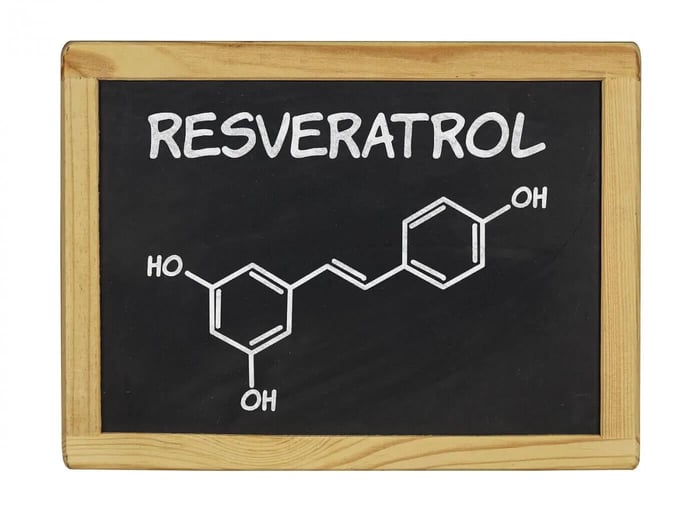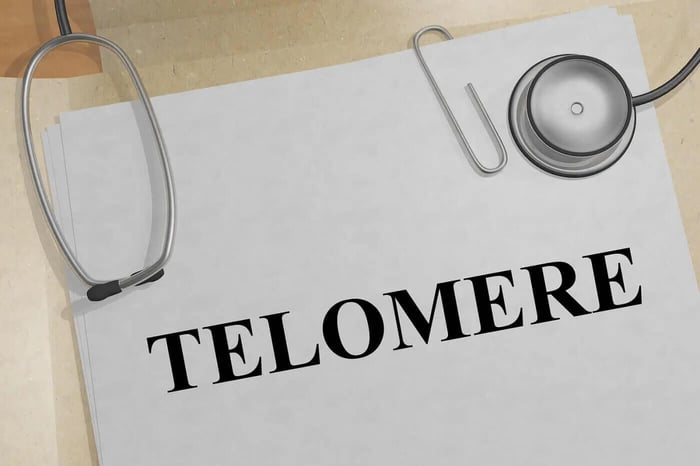Resveratrol Breakthrough: How Nano-Encapsulation Technology Revolutionizes Cancer Treatment
Resveratrol continues to capture the attention of cancer researchers worldwide, with groundbreaking advances in delivery methods showing remarkable promise for treating prostate cancer. This powerful polyphenol compound, naturally found in grapes, berries, and peanuts, has demonstrated significant anti-cancer properties in numerous clinical studies. However, scientists have discovered that maximizing resveratrol's therapeutic potential requires innovative delivery solutions.
Understanding Resveratrol's Challenge in Cancer Treatment
The journey of resveratrol from laboratory discovery to clinical application reveals both tremendous potential and significant challenges. While this natural compound shows exceptional promise in fighting various cancer types, researchers have identified a critical obstacle: rapid metabolism. When consumed in traditional forms, resveratrol undergoes quick metabolic processing, limiting its effectiveness in reaching cancer cells at therapeutic concentrations.
This metabolic challenge has sparked innovative research into advanced delivery systems. Scientists recognize that enhancing resveratrol bioavailability could unlock its full cancer-fighting potential, leading to breakthrough treatments that harness nature's own defense mechanisms against malignant cells.
The Evolution of Resveratrol Delivery Methods
Micronization: The First Step Forward
Researchers have pioneered several approaches to improve resveratrol delivery, with micronization emerging as an early success story. This technique involves reducing particle size to microscopic levels, significantly enhancing absorption rates. Studies have shown that micronized resveratrol, such as formulations found in specialized supplements like Micro500 and Nitro250 RevGenetics capsules, can achieve remarkable results:
- 3.6-fold increase in blood bioavailability
- 39% improvement in cancer cell death markers
- Enhanced absorption through intestinal walls
- More consistent therapeutic blood levels
Published research in Cancer Prevention Research (September 2011) documented these impressive outcomes, demonstrating that particle size reduction directly correlates with improved therapeutic efficacy. This breakthrough laid the foundation for even more advanced delivery technologies.
Nano-Encapsulation: The Game-Changing Innovation
The latest advancement in resveratrol delivery technology involves nano-encapsulation, a sophisticated approach that encases resveratrol molecules within protective nano-sized capsules. These microscopic vessels, measuring in billionths of a meter, are invisible to the naked eye yet powerful enough to transform cancer treatment outcomes.
Published in Molecular Pharmaceutics (August 2013), groundbreaking research reveals how nano-encapsulation addresses multiple challenges simultaneously:
- Protection from degradation: Nano-capsules shield resveratrol from stomach acids and digestive enzymes
- Controlled release: Programmable capsules release resveratrol precisely where needed
- Enhanced penetration: Smaller size allows deeper tissue penetration
- Targeted delivery: Capsules can be designed to target specific cancer cells
Breakthrough Results in Prostate Cancer Research
Recent studies focusing on prostate cancer have yielded particularly encouraging results for nano-encapsulated resveratrol. Researchers tested this innovative delivery method against two distinct types of prostate cancer cells, representing different disease stages and treatment challenges.
Androgen-Dependent Cancer Cells
These cells represent early-stage prostate cancer, typically more responsive to treatment. Nano-encapsulated resveratrol demonstrated exceptional toxicity against these cells, suggesting powerful preventive potential for men at risk of developing prostate cancer. The controlled release mechanism ensured sustained therapeutic levels, maximizing cancer cell destruction while minimizing side effects.
Androgen-Independent Cancer Cells
Late-stage prostate cancer cells, which have become resistant to hormone therapy, pose significant treatment challenges. Remarkably, nano-encapsulated resveratrol showed equally impressive results against these stubborn cancer cells. This finding offers hope for patients with advanced prostate cancer who have limited treatment options.
The research team observed that nano-encapsulation allowed resveratrol to maintain its anti-cancer properties under various conditions, including:
- Simulated gastrointestinal fluids
- Tumor microenvironment conditions
- Different pH levels
- Varying temperature conditions
How Nano-Encapsulation Works: The Science Behind Success
Understanding the mechanism of nano-encapsulated resveratrol reveals why this technology represents such a significant advancement. The process involves several sophisticated steps that work together to maximize therapeutic impact:
| Process Stage | Function | Benefit |
|---|---|---|
| Encapsulation | Resveratrol molecules surrounded by protective coating | Prevents premature degradation |
| Transit | Capsules travel through digestive system intact | Maintains therapeutic potency |
| Target Recognition | Capsules identify cancer cell markers | Ensures precise delivery |
| Controlled Release | Gradual resveratrol release at target site | Maximizes cancer cell exposure |
Future Implications for Cancer Treatment
The success of nano-encapsulated resveratrol in laboratory studies opens exciting possibilities for cancer treatment advancement. This technology could revolutionize how we approach cancer prevention and therapy, offering several advantages over traditional treatments:
Reduced Side Effects
By targeting cancer cells specifically, nano-encapsulated resveratrol minimizes exposure to healthy tissues. This precision reduces common chemotherapy side effects, improving patient quality of life during treatment.
Enhanced Treatment Efficacy
The improved bioavailability and sustained release profile mean lower doses of resveratrol can achieve better results. This efficiency translates to more effective treatments with fewer pills or injections required.
Combination Therapy Potential
Nano-encapsulation technology opens doors for combining resveratrol with other anti-cancer compounds. Researchers envision multi-drug nano-capsules that deliver synergistic cancer-fighting combinations directly to tumors.
Practical Applications and Current Research
While nano-encapsulated resveratrol remains in research phases, several practical applications are emerging. Clinical trials are exploring its use in various cancer types beyond prostate cancer, including:
- Breast cancer prevention and treatment
- Colorectal cancer therapy
- Lung cancer interventions
- Liver cancer management
- Brain tumor treatment
Research institutions worldwide are investing in this promising technology, with several pharmaceutical companies developing commercial formulations. The transition from laboratory success to clinical application requires careful testing, but early results inspire confidence in resveratrol's future role in cancer care.
What This Means for Patients and Healthcare
For individuals concerned about cancer prevention or those currently battling the disease, nano-encapsulated resveratrol represents a beacon of hope. This natural compound, enhanced through cutting-edge technology, offers several patient-centered benefits:
- Natural origin: Derived from plants, resveratrol appeals to patients seeking natural treatment options
- Preventive potential: Regular supplementation may help prevent cancer development
- Complementary therapy: Can be used alongside conventional treatments
- Minimal toxicity: Unlike harsh chemotherapy drugs, resveratrol has an excellent safety profile
- Accessibility: As technology advances, nano-encapsulated formulations will become more widely available
Looking Ahead: The Promise of Resveratrol in Modern Medicine
The journey of resveratrol from wine compound to sophisticated cancer treatment exemplifies modern medicine's evolution. As researchers continue refining nano-encapsulation techniques, we can expect even more impressive results. The convergence of natural compounds with advanced delivery technologies promises a new era in cancer treatment, one that prioritizes effectiveness while minimizing patient suffering.
For those inspired by these developments, staying informed about resveratrol research and discussing options with healthcare providers represents proactive health management. While more research is needed before nano-encapsulated resveratrol becomes standard treatment, current findings provide compelling reasons for optimism in the fight against cancer.
Frequently Asked Questions About Resveratrol and Nano-Encapsulation
What exactly is resveratrol and where does it come from naturally?
Resveratrol is a powerful antioxidant compound called a polyphenol, naturally produced by plants as a defense mechanism against stress, injury, and fungal infections. You can find resveratrol in red grapes (especially the skin), blueberries, cranberries, peanuts, and Japanese knotweed. Red wine contains resveratrol because it's made with grape skins, which sparked initial research interest in this compound's health benefits. The highest natural concentrations occur in grape skins and Japanese knotweed root.
How does nano-encapsulation improve resveratrol effectiveness against cancer?
Nano-encapsulation dramatically improves resveratrol's cancer-fighting abilities by solving its biggest limitation: rapid metabolism. When you consume regular resveratrol, your body quickly breaks it down, preventing therapeutic levels from reaching cancer cells. Nano-capsules protect resveratrol molecules during digestion, allowing them to reach target tissues intact. These tiny protective shells then release resveratrol directly at cancer sites, increasing local concentrations by several fold. Studies show this method can improve cancer cell toxicity significantly compared to standard resveratrol supplements.
Is nano-encapsulated resveratrol safe for human consumption?
Research indicates that nano-encapsulated resveratrol maintains the excellent safety profile of regular resveratrol while enhancing its benefits. The nano-capsules themselves are typically made from biocompatible materials that dissolve harmlessly in the body. Clinical studies have shown minimal side effects, with most participants tolerating nano-encapsulated resveratrol well. However, as with any supplement, consulting healthcare providers before starting is recommended, especially for individuals with existing health conditions or those taking medications.
When will nano-encapsulated resveratrol be available for cancer patients?
While research results are extremely promising, nano-encapsulated resveratrol for cancer treatment is still progressing through clinical trials. The timeline typically involves several phases of human testing to ensure safety and efficacy. Some specialized supplements using advanced delivery methods are already available, but therapeutic formulations specifically approved for cancer treatment may take several more years. Patients interested in resveratrol supplementation should discuss current options with their oncologists, as some forms may complement existing treatments.
Can resveratrol prevent cancer in healthy individuals?
Multiple studies suggest that resveratrol possesses significant cancer-preventive properties. Its antioxidant and anti-inflammatory effects help protect cells from DNA damage that can lead to cancer. Population studies show lower cancer rates in regions with high dietary resveratrol intake. While definitive prevention claims require more research, regular resveratrol supplementation appears to support overall cellular health and may reduce cancer risk, especially when combined with healthy lifestyle choices like proper diet and exercise.
What types of cancer respond best to resveratrol treatment?
Research shows resveratrol effectiveness against multiple cancer types, with particularly strong results for prostate, breast, colorectal, and skin cancers. The compound appears to work through various mechanisms, including triggering cancer cell death, preventing tumor blood vessel formation, and reducing inflammation. Prostate cancer studies using nano-encapsulated resveratrol show exceptional promise, with significant toxicity against both early and late-stage cancer cells. Ongoing research continues exploring its potential against other cancer types.
How does micronized resveratrol compare to nano-encapsulated forms?
Both micronized and nano-encapsulated resveratrol represent significant improvements over standard supplements. Micronization reduces particle size to improve absorption, achieving up to 3.6-fold better bioavailability. Nano-encapsulation goes further by protecting resveratrol from degradation while enabling targeted delivery. While micronized forms offer good improvements and are currently available in products like Micro500 supplements, nano-encapsulation provides superior protection and controlled release, making it potentially more effective for therapeutic applications.
What dosage of resveratrol is recommended for cancer prevention?
Optimal resveratrol dosage varies based on individual factors and the specific formulation used. Clinical studies have tested doses ranging from 150mg to 5000mg daily, with most showing benefits at 250-1000mg for standard formulations. Advanced delivery methods like micronization or nano-encapsulation may require lower doses due to improved absorption. For cancer prevention, many experts suggest 250-500mg daily of high-quality resveratrol, but personalized recommendations from healthcare providers ensure the best approach for individual circumstances.
Can resveratrol be combined with conventional cancer treatments?
Research indicates that resveratrol can complement many conventional cancer treatments, potentially enhancing their effectiveness while reducing side effects. Studies show resveratrol may increase cancer cell sensitivity to chemotherapy and radiation while protecting healthy cells. However, timing and dosage require careful consideration, as resveratrol's antioxidant properties might interfere with certain treatments that rely on oxidative stress. Patients should always consult their oncology team before adding resveratrol to their treatment regimen to ensure safe and beneficial integration.
What makes nano-encapsulation technology revolutionary for supplement delivery?
Nano-encapsulation revolutionizes supplement delivery by solving fundamental absorption and stability challenges. Traditional supplements often degrade in stomach acid or pass through the digestive system with minimal absorption. Nano-capsules create protective shells around active ingredients, ensuring they reach target tissues intact. This technology enables controlled release, allowing sustained therapeutic levels rather than brief spikes. For compounds like resveratrol that metabolize quickly, nano-encapsulation can increase effectiveness by 10-fold or more, transforming marginally effective supplements into powerful therapeutic tools.
```






